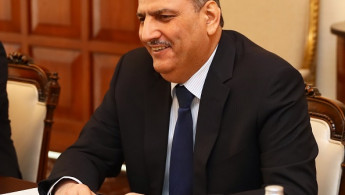Syrian opposition conference in Doha calls for reforms
A Syrian opposition conference held in Doha this weekend concluded by reaffirming the opposition's refusal of "normalisation" with Bashar al-Assad's regime, and calling for a set of reforms to be implemented.
The two-day conference entitled "Whither Syria?" invited a host of Syrian opposition figures from various political bodies, including the Syrian Opposition Coalition (SOC). The introductory speech was given by Riad Hijab, a former Prime Minister of Syria who became a prominent opposition figure during the course of the Syrian revolution.
The conference issued a 17-point statement calling for specific reforms ranging from the empowerment of youth and women to the documenting of war crimes committed in Syria.
Notably, the statement also highlighted the need to "reform the revolutionary and opposition forces and enhance their performance in a way that enables them to achieve the right and legitimate demands of the Syrian people".
Observers have speculated that the Doha conference might lead to the launch of a new Syrian opposition course of action, citing the stalled efforts of the SOC in pushing forward UN Security Council Resolution 2254.
The UNSC Resolution provides a wide framework for ensuring a political transition in Syria and ending the more than decade-long long civil war.
According to Malik Al-Abdeh and Lars Hauch, who wrote a brief on the Doha conference, the conference might offer an opportunity to offer an "internal renewal and political strategy given" for the Syrian opposition given the "deadlock of UN-led peace negotiations".
Whether the conference will be a one-off or lead to a new strategy for the opposition is yet to be seen.
Doha, alongside Ankara, has hosted a number of Syrian opposition figures over the last decade, including high-ranking members of the SOC.
On Monday, the president of the SOC, Salem al-Maslat, met with the US Assistant Secretary of State of Near Eastern Affairs Ethan Goldrich, in Doha.
Among other items discussed, the two reaffirmed support for the political track under UNSCR 2254, while Al-Maslat warned "against any disruptive proposals that divert the political process from its track".





 Follow the Middle East's top stories in English at The New Arab on Google News
Follow the Middle East's top stories in English at The New Arab on Google News
![The UAE is widely suspected of arming the RSF militia [Getty]](/sites/default/files/styles/image_330x185/public/2024-11/GettyImages-472529908.jpg?h=69f2b9d0&itok=Yauw3YTG)
![Netanyahu furiously denounced the ICC [Getty]](/sites/default/files/styles/image_330x185/public/2024-11/GettyImages-2169352575.jpg?h=199d8c1f&itok=-vRiruf5)
![Both Hamas and the Palestinian Authority welcomed the ICC arrest warrants [Getty]](/sites/default/files/styles/image_330x185/public/2024-11/GettyImages-2178351173.jpg?h=199d8c1f&itok=TV858iVg)